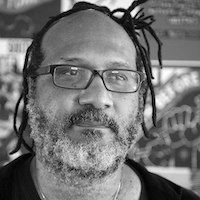
AAP Newsletter – March 2021
- AAP Conference 2021
-
- Welcome
- Key dates and information
- Early Bird Registrations Open & Call for Abstracts
- Postgraduate Presentation Prize Call for Entries
- Committee news
- Departures & Arrivals
- APR call for Open Peer Commentaries
- UPJA call for editors


AAP Conference 2021 – From the conference organisers
The 2021 AAP Conference will be held online from 6th - 15 July 2021.
The ongoing global pandemic has forced us all to reconsider who we are and how we interact with others, personally and professionally. Some changes have been mundane: no more handshakes; Zoom has replaced travel; and, “You’re muted” has replaced “Pardon me.” Other realisations have been less sanguine. Many of the 3 million deaths due to coronavirus were unnecessary. Racism, misogyny, toxic masculinity, and science denial—“isms” long thought to be marginalised—have spread wildly online and in-person.
Given uncertainty in timelines for resolving the pandemic, we will host this year’s Australasian Association of Philosophy conference online. While many would prefer to meet face-to-face, we are constrained by both our concern for members of the philosophical community and by institutional uncertainty about in-person gatherings. Until this crisis has been resolved, we will embrace the “new normal,” which entails meeting online and battling through Zoom fatigue. Embracing the new normal also presents opportunities, especially for those who prefer to reduce their carbon footprint.
Here’s how we propose to offer a program that maximises engagement and minimises detachment. We will use the Whova online conference platform because the app is easy to use and is familiar to many AAP members from its adoption with the face-to-face conferences in 2017, 2018, and 2019. The new online platform offers an integrated experience – linking the agenda with live streaming via zoom for presentations, as well as chat functions and opportunities for social networking.
Instead of the usual 4-day event, the conference will take place over an extended period of two weeks, from 6 July 2021 through 15 July 2021. Live-streamed sessions will occur on Tuesday, Wednesday, and Thursday of those two weeks, in most cases limited to the hours of 10am-4pm AEST. Paper sessions will be as normal for the AAP - 50 minute slots. We are also planning some special events, such as poster sessions, panel discussions, and author meets critics sessions. In addition, we will be running special sessions for academic staff, postgraduates and undergraduates, including sessions planned on online teaching, careers and undergraduate study options. The Presidential Address, provocatively entitled, “Do your own research!,” will be given by Neil Levy. As in previous years we offer the Postgraduate Presentation Prize for the best paper presented by a postgraduate student and this year an Undergraduate Poster Prize for the best poster by an Undergraduate student.
We have an exciting line up of keynote speakers: Jenann Ismael, Stephen M Gardiner, Michelle Kosch, Lewis Gordon, Kate Manne, and Peter Godfrey-Smith. In recognition of the timing challenges facing international keynote speakers at an Australasian online conference we are taking a different approach to these presentations. Most will be prerecorded and available for participants to view at least one week in advance of the conference. Conference participants will be able to submit questions in advance of a special live Q&A session with the keynote speakers.
This year’s Alan Saunders Lecture, held in conjunction with the ABC, will be given by Stephen Gardiner. This free, ticketed event will be held alongside the Conference and will be live streamed.
An online conference offers options to participate from those perhaps normally unable to attend the annual face-to-face conference. In recognition of the difficulties facing many in the profession, to support and bring our community of scholars together at this time, registrations for this year have been set at a significantly reduced rate in comparison with face-to-face conferences.
The online format also permits universities in smaller centres to host the conference. The University of Waikato is well-positioned to host and support this year’s AAP conference. Amongst our brightest graduates we include the New Zealand Prime Minister Jacinda Ardern. We anticipate that the active collegial atmosphere we enjoy at our university will be reflected in the conference we organise for the AAP.
We look forward to welcoming you to the conference,
Nick Munn and Joe Ulatowski

Early Bird Registration & Abstract Submission for papers and posters is now open through the conference website: aap.org.au/Registration-&-Abstract-Submission
Key dates:
Abstract Submission Deadline: Tuesday 1 June 2021 8.00pm AEST
Early Bird Registration Deadline: Tuesday 8 June 2021 8.00pm AEST
2021 Keynotes
 |
 |
 |
| Jenann Ismael |
Stephen M Gardiner |
Michelle Kosch |
 |
 |
 |
| Lewis Gordon |
Kate Manne | Peter Godfrey-Smith |
Postgraduate Presentation Prize Call for Entries
Sponsored by Taylor and Francis, publisher of the Australasian Journal of Philosophy & the Australasian Philosophical Review.
The Australasian Association of Philosophy (AAP) awards a monetary prize for the best paper presented by a postgraduate student at the annual July conference. This prize is offered to encourage postgraduates to present at the AAP Conference, and to recognise the philosophical contributions from excellent Australasian postgraduate students.
Applicants must submit a full paper, prepared for blind review, of between 3000-5000 words (incl. references)
More information and entry form available HERE
Deadline: Tuesday 25 May 2021 8.00pm AEST

Committee news
The AAP Media Committee has developed a media engagement strategy aimed to increase the presence and visibility of philosophers in the media and has been working with an external agency to implement the AAP Media Strategy. This partnership has led to a number of additional appearances by Australasian philosophers in radio and print media in the first quarter of 2021. These include discussion of how critical thinking is taught in schools (www.abc.net.au/news/2021-02-05/queensland-schools-need-to-revamp-critical-thinking/13122872); complexities around the COVID-19 vaccine (www.illawarramercury.com.au/story/7120435/its-vital-to-combat-covid-vaccine-hesitancy-says-uow-bioethicist/?cs=17267); and, the rising prominence of right-wing views.
The Philosophy in the Community Committee has been concentrating on supporting Philosothons for school children across the region and will again be organising the AAP Philosothon, to be held online on September 28-29 2021.
The Postgraduate committee are also planning to run the Australasian Postgraduate Conference online in 2021. The committee is working on an update to the Postgraduate Student Guide, with a focus on providing more information about non-academic career paths and doing research during the pandemic.
The Impact of Philosophy Committee has been busy planning a website to publicise the value and importance of a philosophy education to a number of community stakeholders, including students and employers. The site will build on the existing profiles of philosophy students and include information on philosophy in the workplace and philosophical impact in the community. They aim to have the site launched in time for the conference.
Karen Green's Presidential Project has revamped the Women’s Works site aimed at fostering the inclusion of texts by women for incorporation in undergraduate curricula. This too is aimed to launch in time for the conference.

Departures & Arrivals
Staff – Chris Lawless, the AAP's Administrative Officer, has ceased working for the Association. Chris was with the organisation for three years. During that time Chris played an important role in administration of the AAP conference, prizes and membership. Many of you will have met Chris through these activities. We wish Chris all the best for his future.
Committees –
We thank Moira Gatens (University of Sydney), Catherine Mills (Monash University) and Ines Hipolito (Humboldt University) for their service on the Status of Women in the Philosophy Committee: both Moira and Catherine have been long standing members of the committee. We welcome new members to the committee: Cei Maslen (Victoria University Wellington) and Justine Kinsgbury (University of Waikato).
We thank Nicholas H. Smith (Macquarie University) for his work on the Australasian Philosophical Review committee: Nick has been on the committee since the inception of the Journal. We welcome Simon Lumsden (UNSW) onto the committee.
We thank Heather Dyke (University of Otago) for her work on the Australasian Journal of Philosophy Committee.
We thank Danny Wardle (University of Adelaide) who has stepped down as convenor of the Postgraduate Committee and welcome Ariane Moore (University of Tasmania) into the role.
We thank Nin Kirkham (University of Western Australia) and Lenny Robinson-McCarthy (Preshil, now Melbourne Girls’ Grammar) for their work on the Philosophy in the Community Committee and welcome new committee members Kara Vaughn (Helensvale State High school and Impact Centre, Department of Education, QLD) and Nicolas Bullot (Charles Darwin University).

APR call for Open Peer Commentaries
Call for Proposals for Open Peer Commentaries: Australasian Philosophical Review
Theme: Moral Psychology
Lead Authors: Nicole A Vincent and Emma A Jane
Invited commentaries from: Sophie Grace Chappell, Tereza Hendl & Loren Britton, Hilde Lindemann, Robert A. Wilson
"Interrogating Incongruence: Conceptual and Normative Problems with ICD-11's and DSM-5's Diagnostic Categories for Transgender People"
Curator: Jeanette Kennett
The APR is seeking proposals for open peer commentaries on Nicole A Vincent and Emma A Jane - "Interrogating Incongruence: Conceptual and Normative Problems with ICD-11's and DSM-5's Diagnostic Categories for Transgender People"
Proposal abstracts should be brief (100-500 words), stating clearly the aspects of the lead article that will be discussed, together with an indication of the line that will be taken. More details are available on the APR website, https://www.aap.org.au/APR/
Abstract submissions are due on 7 May 2021. Invitations to write commentaries of 2000-3000 words will be issued on 8 June 2021. Full-length commentaries will be due on 13 August 2021.

UPJA Call for Papers and Call for Referees
The Undergraduate Philosophy Journal of Australasia (UPJA has opened the call for papers and referees for the next issue, Volume 3, Issue 1, and are accepting both original articles and critical reply pieces to previously published UPJA papers.
UJPA are also seeking referee applications from interested undergraduate and postgraduate students or recent graduates worldwide. Referees will be asked to make comments on papers, suggest revisions to the author, and return an evaluation to the editors. No prior refereeing experience is needed and guidelines will be provided.
The deadline for submissions and applications is 28 March 2021, 23:59 AEDT (UTC +11). Further details can be found on our website here: https://upja.online.
©Australasian Association of Philosophy
ACN 152 892 272
ABN 29 152 892 272